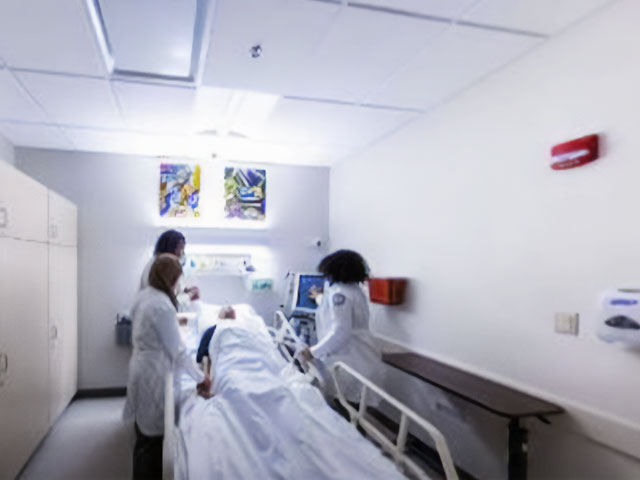Division of Cardiopulmonary Science
Division of Cardiopulmonary Science
Cardiopulmonary Science (CPS), also known as respiratory therapy, is an allied health
profession that provides for the diagnosis, treatment, management, preventive care,
and rehabilitation of patients with cardiopulmonary abnormalities. Florida A&M University
changed the program name from respiratory therapy to cardiopulmonary science in 1998.
Patients who have asthma, chronic bronchitis, emphysema, cystic fibrosis, and coronary
heart disease are commonly evaluated and treated by respiratory therapists. Respiratory
therapists work with patients in the critical care unit, emergency room, newborn nursery,
outpatient clinic and critical care transport.
Working with physicians and other health professionals, respiratory therapists assess
the health status of clients, manage complex diagnostic and life support systems,
operate and maintain sophisticated monitoring devices, and routinely administer medications,
as well as perform other procedures.
Program Goals:
To prepare graduates with demonstrated competence in the cognitive (knowledge), psychomotor(skills), and affective (behavior) learning domains of respiratory care practice as performed by registered respiratory therapists (RRTs).
To prepare leaders for the field of respiratory care by including curricular content
with objectives related to the acquisition of skills in one or more of the following:
management, education, research, and advanced clinical practice (which may include
an area of clinical specialization).
Accreditation Status
The CPS Program is accredited by the Commission on Accreditation for Respiratory Care (CoARC) #200321. Through November, 2024.
Commission on Accreditation for Respiratory Care (CoARC) 264 Precision Boulevard | Telford, TN | 37690 | USAPhone: (817) 283-2835
www.coarc.com
CoARC Program ID #200321
Our Program Curriculum and Courses
The curriculum in the CPS is designed to prepare advanced respiratory care practitioners. Before applying to the program, candidates must first be admitted to the university. The curriculum is divided into two phases: a pre-professional curriculum and a professional curriculum.
Program Faculty
| Name | Phone | |
|---|---|---|
| Ms. Kandy Woods Program Director |
kandy.woods@famu.edu | (850) 412-7863 |
| Mr. James Wright Director of Clinical Education |
james2.wright@famu.edu | (850) 412-7863 |
| Dr. David Saint Medical Director |
dlsaint@mac.com | (850) 412-7863 |
More about Cardiopulmonary Science
Commission on Accreditation for Respiratory Care (CoARC) 264 Precision Boulevard | Telford, TN | 37690 | USA
Phone: 817-283-2835
www.coarc.com
CoARC Program ID #200321
CoARC’s Outcomes Webpage





